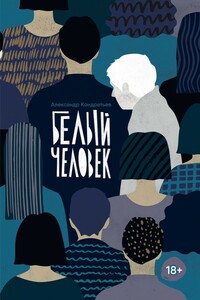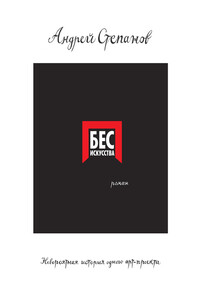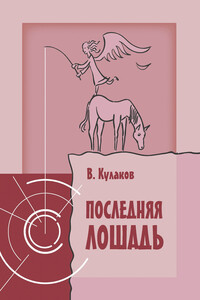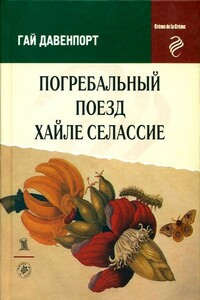36 Arguments for the Existence of God - [54]
“No.” Cass didn’t know what his precise emotion was, but he could feel the fire under his skin.
“I submit you think upon it. You might, for example, take Cass as your last name.”
“Then what would my first name be?”
“Do you have, perchance, a Hebrew name?”
“Chaim.”
Jonas Elijah Klapper opened his eyes very wide.
“Were you aware of its meaning?”
“Life, isn’t it?”
“‘Lives.’ Its gematria value is thirty-six, which is twice eighteen, which is the gematriac value for ‘life.’ Thirty-six is of a hiddenness that sustains existence.”
Cass knew that the letters in the Hebrew word chai, meaning “life,” could also be read as the number eighteen, which is why Jews often write Bar Mitzvah gift checks in multiples of eighteen. But beyond that he didn’t know what Professor Klapper was talking about. He would ask Gideon.
“And yet, for all that, ‘Chaim Cass’ is not quite right. What, might I ask, was your mother’s maiden name?”
“Sheiner.”
“Better, but not much.”
Klapper leaned back into his slatted chair. It had a thick green cushion on it. Cass stole a glance at the photograph of the professor’s mother, who had been named, Cass now had every reason to believe, Hannah Klepfish.
“I have it!” Klapper announced. Was his adviser about to baptize him? “I know where it was that I’ve heard that name Sheiner before. The name of Sheiner is ablaze with majestic luster. It is the dynastic name of the Chief Rabbi of the Valdener Hasidim, a small sect whose leader can trace his lineage back to the inflamed visionary who channeled the Kabbalism of Isaac Luria, the sixteenth-century lion of esoteric Judaism also known as the Arizal, into a more accessible populist venue, and who became the founder of the single most important religious revision in Judaism, by which I mean Hasidism. Hasidism grew into a mass reaction against the abuses of the Pharisaic normative tradition. There are a plurality of Ha-sidic sects, each led by its own charismatic Grand Rabbi-or Rebbe, as he is wont to be called. I refer, of course, to Rabbi Israel ben Eliezer, the holy Ba’al Shem Tov or Master of the Good Name, also abbreviated into the appellation the Besht, back to whom all Hasidic sects trace themselves. The Ba’al Shem Tov’s past is shrouded in legend, as befits a legendary figure of his proportions, but he was most likely born in 1700, and in the small Ukrainian village of Okop. He was an orphan, who dressed and comported himself like an ignorant peasant while he went off to the forests to commune with cosmic forces. Nobody guessed his singular holiness. He finally revealed himself to the world when he was thirty-six. Had you any idea?”
Of which aspect of the preceding sequence was his adviser asking had he any idea? Cass opted for the concrete.
“Well, yes. My mother was born into a Valdener family. She’s related to the Valdener Rebbe. I used to visit New Walden as a child.”
Jonas Elijah Klapper shot forward in his chair so that he was half hanging off it. His facial expressions sometimes mimicked a silent-film actor. At this moment, you could almost hear Cecil B. DeMille shouting through his horn, “Show us amazement!”
“So, then, you, too, can trace your lineage back to the holy Ba’al Shem Tov?”
“Well, yes, I guess I can. I never really thought about it.”
“Never really thought about it?”
Jonas Elijah Klapper collapsed back into his chair, his outburst knocking the stuffing out of him.
But he soon recovered. He sat up and, turning his back to Cass, put his elbows on his desk and buried his face in his palms. Cass sat there in an agony of uncertainty. Anything at all could be happening now. One guess was as good as the next. Minutes passed. Should he quietly exit? Had Jonas Elijah Klapper already excused him and gone back to work? Cass knew from the others that this sometimes happened.
“Well, this is extraordinary,” Professor Klapper finally said, turning around in his revolving chair and again facing Cass. “This is something I could never have foreseen.”
Jonas Elijah Klapper was gazing at Cass with discomfiting intensity, as if searching in Cass Seltzer’s amiable though distressed visage for signs of the Ba’al Shem Tov’s lingering presence. Cass was forced to stare straight back into the professor’s face, and at close range.
It was, for some obscure reason, excruciatingly uncomfortable to be this physically close to Jonas Elijah Klapper. Not even he was Pure Spirit. The soaring sentences were punctuated by panting intakes of air. The thighs, encased in gray broadcloth, seemed like items better described in the vocabulary of architecture than of anatomy. His face, too, was markedly corporeal-heavy and fleshy. The cultivated elegance of his mind had done what it could, but when he spoke of “the divine pathos,” “the inconsolable solitude,” “the fraught distance between the poet and reader,” he never managed to look more pathetic, inconsolable, or fraught than the man behind the deli counter. But his eyes were sad. There was a depth of sadness in his eyes.
“I have a great interest in meeting the Valdener Rebbe, a man who I suspect confounds that prejudice which sees no worldly knowledge in the Hasidim. As you, of course, are intimately aware, my dear Mr. Seltzer-or may I call you Reb Chaim?-the Grand Rabbi of the Valdeners named the seat of his New World rabbinical court New Walden, presumably alluding to the American transcendentalism of our own homegrown seers Ralph Waldo Emerson and Henry David Thoreau.”

В книге рассказывается история главного героя, который сталкивается с различными проблемами и препятствиями на протяжении всего своего путешествия. По пути он встречает множество второстепенных персонажей, которые играют важные роли в истории. Благодаря опыту главного героя книга исследует такие темы, как любовь, потеря, надежда и стойкость. По мере того, как главный герой преодолевает свои трудности, он усваивает ценные уроки жизни и растет как личность.

В городе появляется новое лицо: загадочный белый человек. Пейл Арсин — альбинос. Люди относятся к нему настороженно. Его появление совпадает с убийством девочки. В Приюте уже много лет не происходило ничего подобного, и Пейлу нужно убедить целый город, что цвет волос и кожи не делает человека преступником. Роман «Белый человек» — история о толерантности, отношении к меньшинствам и социальной справедливости. Категорически не рекомендуется впечатлительным читателям и любителям счастливых финалов.

Кто продал искромсанный холст за три миллиона фунтов? Кто использовал мертвых зайцев и живых койотов в качестве материала для своих перформансов? Кто нарушил покой жителей уральского города, устроив у них под окнами новую культурную столицу России? Не знаете? Послушайте, да вы вообще ничего не знаете о современном искусстве! Эта книга даст вам возможность ликвидировать столь досадный пробел. Титанические аферы, шизофренические проекты, картины ада, а также блестящая лекция о том, куда же за сто лет приплыл пароход современности, – в сатирической дьяволиаде, написанной очень серьезным профессором-филологом. А началось все с того, что ясным мартовским утром 2009 года в тихий город Прыжовск прибыл голубоглазый галерист Кондрат Евсеевич Синькин, а за ним потянулись и лучшие силы актуального искусства.

Семейная драма, написанная жестко, откровенно, безвыходно, заставляющая вспомнить кинематограф Бергмана. Мужчина слишком молод и занимается карьерой, а женщина отчаянно хочет детей и уже томится этим желанием, уже разрушает их союз. Наконец любимый решается: боится потерять ее. И когда всё (но совсем непросто) получается, рождаются близнецы – раньше срока. Жизнь семьи, полная напряженного ожидания и измученных надежд, продолжается в больнице. Пока не случается страшное… Это пронзительная и откровенная книга о счастье – и бесконечности боли, и неотменимости вины.

Книга, которую вы держите в руках – о Любви, о величии человеческого духа, о самоотверженности в минуту опасности и о многом другом, что реально существует в нашей жизни. Читателей ждёт встреча с удивительным миром цирка, его жизнью, людьми, бытом. Писатель использовал рисунки с натуры. Здесь нет выдумки, а если и есть, то совсем немного. «Последняя лошадь» является своеобразным продолжением ранее написанной повести «Сердце в опилках». Действие происходит в конце восьмидесятых годов прошлого столетия. Основными героями повествования снова будут Пашка Жарких, Валентина, Захарыч и другие.

В литературной культуре, недостаточно знающей собственное прошлое, переполненной банальными и затертыми представлениями, чрезмерно увлеченной неосмысленным настоящим, отважная оригинальность Давенпорта, его эрудиция и историческое воображение неизменно поражают и вдохновляют. Washington Post Рассказы Давенпорта, полные интеллектуальных и эротичных, скрытых и явных поворотов, блистают, точно солнце в ветреный безоблачный день. New York Times Он проклинает прогресс и защищает пользу вечного возвращения со страстью, напоминающей Борхеса… Экзотично, эротично, потрясающе! Los Angeles Times Деликатесы Давенпорта — изысканные, элегантные, нежные — редчайшего типа: это произведения, не имеющие никаких аналогов. Village Voice.